These past three months at Heritage Toronto researching the Chilean exile and settlement to the city, has taught me a few valuable things so far. Most essential, is the art of networking. Prior to this experience, the thought of having to find contacts that are both knowledgeable and experienced was not something I was accustomed to and seemed like an overwhelming task. Here is my story and some tips that may help those of you trying to manage the same field.

(From: https://www.sbcncanada.org/events/kid-friendly-networking)
Initially when starting my project of developing a walking tour for Heritage Toronto, I thought it would be important to connect with the community to ensure I was accurately representing their story. In order to this, I had to learn how to contact people, conduct interviews, and approach focused-events. Here are some tips and methods that I learned along the way:
First Contact
At some point in everyone lives, we have had to start a conversation with a complete stranger. Some people are naturally good at this, some people learn this skill, and others unfortunately don’t have this natural ability. I fear I am apart of the latter group. So how did I start networking? I took advantage of e-mails. Yes, it may be a fairly obvious starting point, but using e-mails to connect with individuals gives the contact a pressure free choice in speaking to you. If they are interested and choose to be involved in your project, a brief e-mail provides you an opportunity to concisely explain your project and at the same time request their help. Also, concluding your email with a statement that invites them to contact you back with their own schedule and availability, and leaving your phone number are keys ways to show your interest and intention.
Events
The thing about local history and heritage preservation is that most often then not there are other people who are trying to raise awareness or discuss the same topic. From my personal experience, discussion on the topic of Chileans in Toronto has been much studied and is still very relevant today. Most likely, after you have begun emailing a few people or have done enough research you will start hearing from or about people who have already started events that have to do with this history. While it may be intimidating and awkward to attend these meetings at first, they are great places to become acquainted with personal perspectives and different points of views from academic work. Events can also be key as they allow you to meet people you wouldn’t normally meet who are also very passionate about the topic.
Locations that May Help
If you’re like me and you are focusing on a local history, going to local shops, galleries, organizations that you have found reflect this history, is another integral part to your networking effort. Sticking to local and small business or organizations allows you to access a different view and voice that is normally not heard. Also, I have learned that most people are willing and able to share their stories, experiences and history of their location.
Interviews
This is part of the process that makes you feel like a true professional. You have finally met a few people are willing to talk to you, and are willing to share their stories. So what do you now?
Well, first you need to determine what you want to get out of this meeting. Do you need an oral history of an event? Is there a particular ideology or understanding of a culture or historical group you want to access? Once you narrow down your objective for the interview, you want to draft a few questions on relevant topics that will serve as a guide throughout the meeting. Practicing these questions and your overall theme is also a very helpful pre-interview tactic. At the interview stage, you will need to determine if you want to record this interview, or jot down notes. It is important here to abide by some ethical norms, whether through the organization you’re working with or just human ones, and get permission! (Preferably written consent)
Hopefully these tips have been helpful. Remember, if you’re confident and relaxed, your interviewee will be as well!
